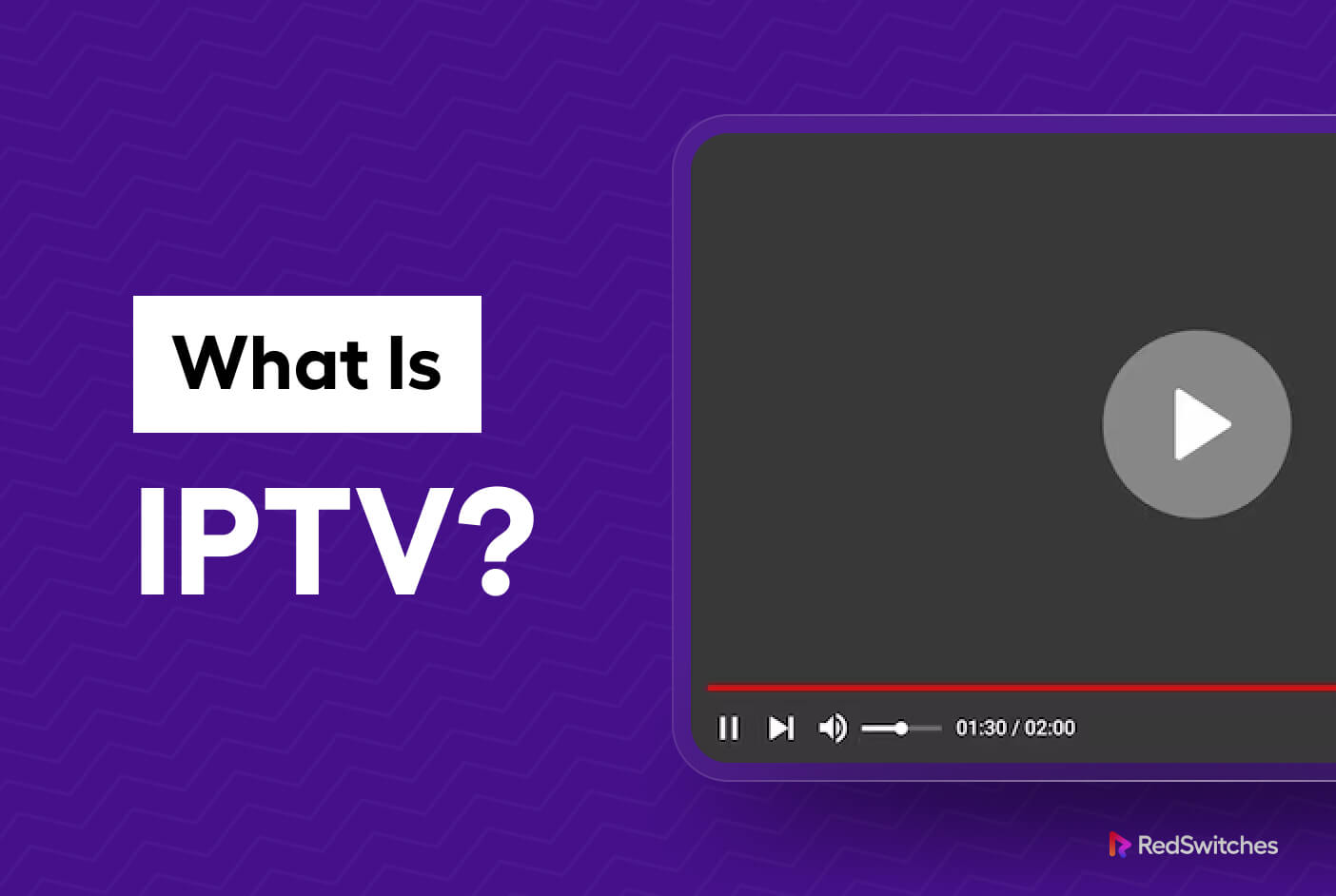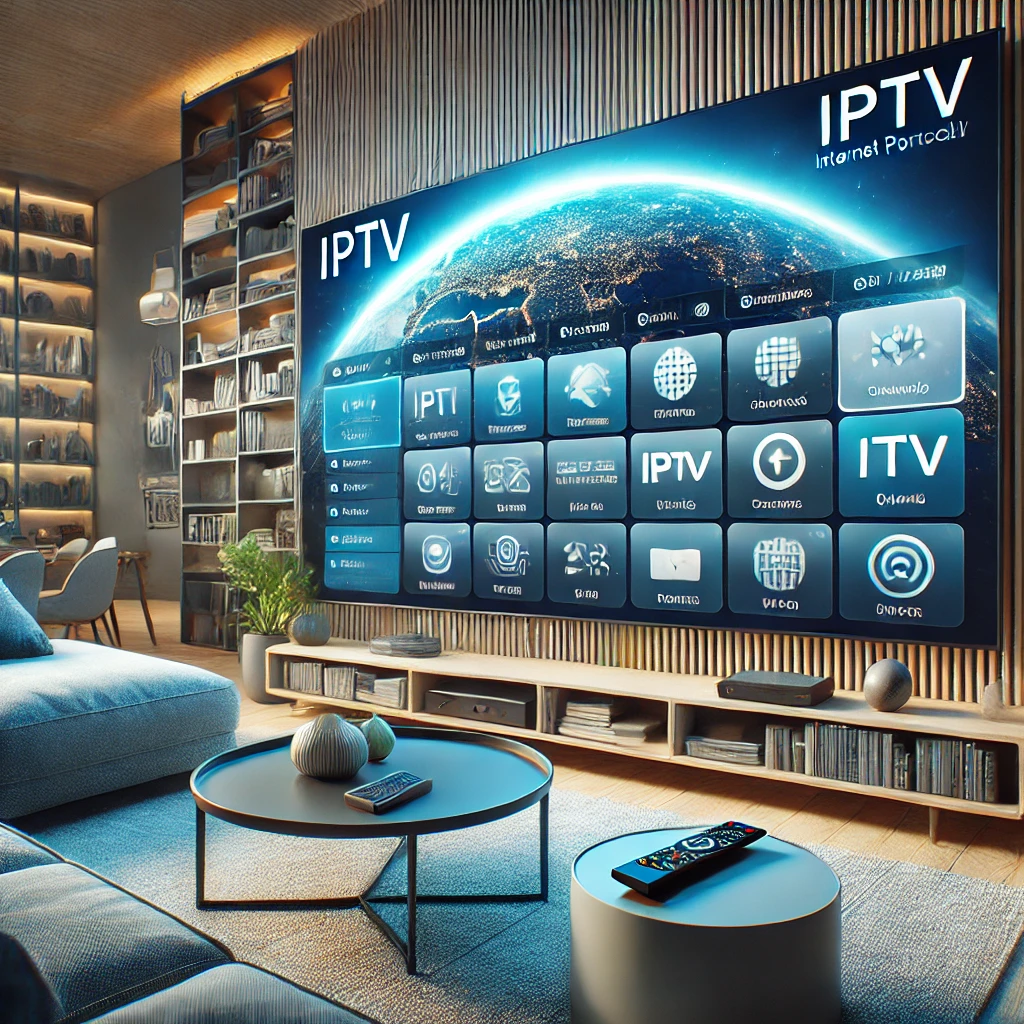IPTV vs. Cable TV-- Which One is Right for You?
IPTV vs. Cable TV-- Which One is Right for You?
Blog Article
Just How IPTV Works: Your Complete Guide to Streaming TV Online
IPTV, or Net Protocol Television, stands for a considerable shift in exactly how we consume tv web content, moving away from standard broadcasting techniques to a more versatile, internet-based strategy. By utilizing a client-server design, IPTV makes it possible for users to access a large selection of programming with digital packages transmitted over broadband connections. Recognizing the intricacies behind this innovation-- such as its parts, advantages, and different solution kinds-- can be essential for making notified selections in today's digital landscape. As we check out these elements, the implications for your watching experience may become a lot more pronounced.
What Is IPTV?
In the world of electronic media, IPTV, or Internet Procedure Tv, represents a transformative approach to supplying television content. Unlike typical broadcasting techniques, which rely on terrestrial, satellite, or wire systems, IPTV uses internet procedure to stream content straight to devices such as tvs, tablets, and smart devices. This innovation enables customers to access a vast range of shows through high-speed web links, offering versatility and benefit.
IPTV can be categorized right into three key service models: online television, video clip on demand (VOD), and time-shifted tv. Online tv enables customers to watch broadcasts in real-time, while VOD supplies access to a collection of content that can be seen at the viewer's benefit. Iptv. Time-shifted television enables viewers to watch programs at their recommended time, also if they originally broadcast live
Furthermore, IPTV frequently includes interactive features, such as digital program overviews and video clip recording capabilities, improving the viewing experience. As customers progressively require customized content and on-demand services, IPTV attracts attention as a compelling option, reshaping the television landscape and offering extraordinary options for audiences worldwide.
Just How IPTV Functions
The seamless combination of modern technology and user experience defines just how IPTV runs. Internet Procedure Tv (IPTV) supplies television programs and various other multimedia web content through web methods, instead than conventional terrestrial, satellite, or wire styles. This process involves inscribing video clip material right into digital packages that are transferred over a broadband internet link.
IPTV typically utilizes a client-server model where content is kept on a server and sent to the individual's gadget-- such as a smart TV, computer, or mobile tool-- upon request. The material shipment is assisted in via a set-top box or an application that decodes the inbound information and offers it on the display. Significantly, IPTV operates on a real-time or on-demand basis, permitting users to access a wide array of channels and shows.
An essential aspect of IPTV is its reliance on a robust broadband link, which ensures smooth streaming and premium video playback. Furthermore, IPTV systems typically integrate advanced features such as digital program overviews (EPGs), time-shifting, and video-on-demand (VOD), improving the checking out experience. Generally, IPTV represents a substantial evolution in just how customers eat tv material, leveraging the power of the web for improved availability and versatility.
Advantages of IPTV
While traditional tv methods frequently limit visitor selections and availability, IPTV supplies numerous advantages that boost the total viewing experience. One of the primary advantages is the substantial selection of content readily available. Audiences can access a huge library of networks, on-demand shows, and flicks, tailored to individual preferences.
Furthermore, IPTV supports several devices, enabling individuals to stream web content on smartphones, tablets, wise TVs, and computers. This adaptability makes sure that visitors can see their preferred programs anytime and anywhere, as long as they have a net connection. Moreover, IPTV often includes interactive elements, such as record, time out, and rewind performances, providing individuals with better control over their seeing routines.
Cost-effectiveness is one more noteworthy advantage. Several IPTV solutions use affordable pricing compared to typical cable television registrations, usually without surprise charges or long-lasting contracts. This price makes it much easier for consumers to discover various networks and web content next without considerable financial commitments.
Last but not least, IPTV generally boasts exceptional photo high quality, including high-def and 4K choices, enhancing the overall watching experience. Jointly, these benefits make IPTV an engaging option for modern customers seeking versatility, variety, and top quality in their enjoyment choices.
Types of IPTV Solutions
IPTV services can be categorized right into numerous unique types, each dealing with various audience needs and preferences. The key groups include online television, on-demand web content, and time-shifted IPTV.
Online tv IPTV provides real-time streaming of broadcast networks, enabling audiences to see programs as they air. This solution carefully resembles typical cord TV, giving accessibility to a variety of networks, consisting of news, sports, and amusement.
On-demand IPTV, on the various other hand, enables customers to choose and watch web content at their benefit. This consists of movies, series, and docudramas that can be streamed whenever the visitor chooses, providing versatility and personalization.
Time-shifted IPTV combines aspects of both real-time and on-demand services. It allows visitors to pause, rewind, or record live programs, providing the capacity to regulate their viewing experience. This service is specifically useful for those with hectic timetables, as it fits visitors that may miss out on real-time broadcasts.

Setting Up IPTV
Establishing IPTV involves several vital actions to make sure a smooth viewing experience. First, you need a stable internet link, ideally a broadband solution with a minimum speed of 10 Mbps for basic definition and at the very least 25 Mbps for high definition streaming. This makes certain minimal buffering and a smooth playback.
Following, pick an IPTV company. Research study different options, comparing their network offerings, prices, and individual reviews. You normally get login credentials and a web link to access the IPTV service. as soon as you have actually chosen a service provider.
To begin streaming, you'll need a compatible device - Iptv. Lots of IPTV solutions can be accessed via Smart TVs, streaming boxes like Roku or Amazon Fire television, computer systems, or mobile gadgets. Download the matching app or software for your chosen platform
After setup, visit using your credentials and set up any necessary settings, such as parental controls or network choices. Lastly, attach your device to your television by means of HDMI, and you're prepared to appreciate a wide range of networks and on-demand content. Consistently check for software application updates to improve efficiency and protection, guaranteeing an optimum IPTV experience.
Verdict

IPTV, or Internet Procedure Tv, stands for a significant shift in just how we consume television content, moving away from typical broadcasting approaches to a more click this link flexible, internet-based method.In the world of electronic media, IPTV, or Net Protocol Tv, stands for a transformative strategy to delivering television web content.IPTV can be categorized into 3 key service designs: real-time tv, video on need (VOD), and time-shifted tv. Net Procedure Tv (IPTV) delivers television programming and other multimedia content using web protocols, instead than standard terrestrial, satellite, or wire layouts. On the whole, IPTV stands for a significant evolution in how visitors take in tv web content, leveraging the power of the net for boosted accessibility and flexibility.
Report this page